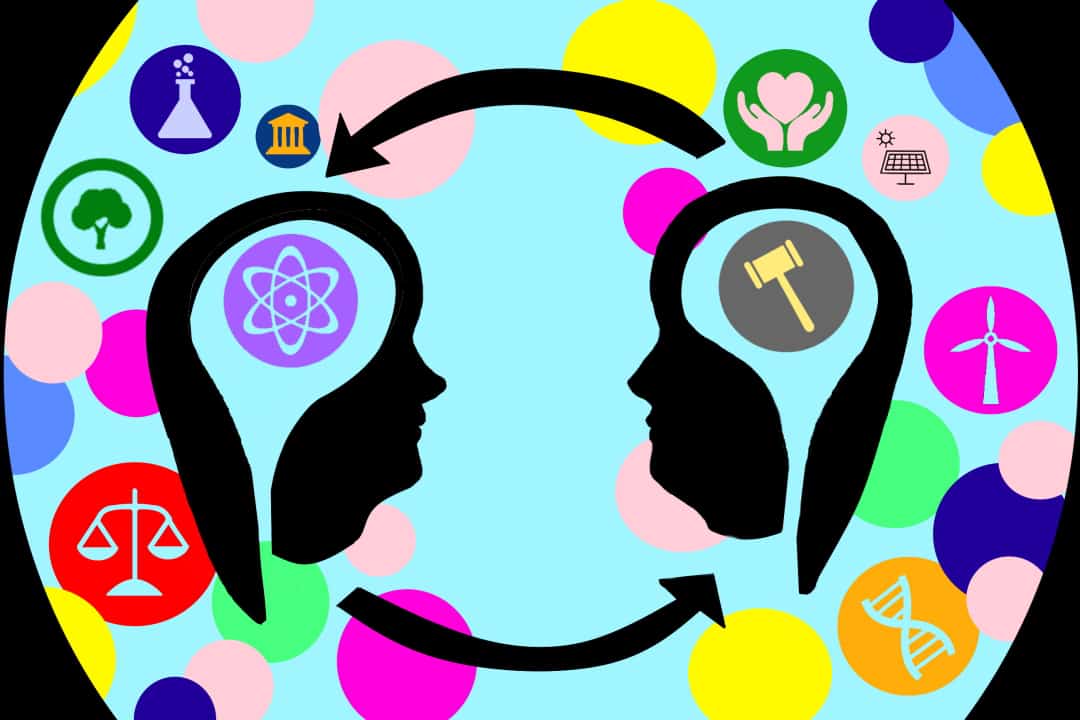For a few decades now, it seems the academic world has been divided into two distinct groups: sciences and humanities. The two have raged against each other, assuming that they’re too different to establish peace. Yet, science should be a subject that everyone can enjoy. It helps us understand how our planet functions, how to keep our bodies healthier, and it doesn’t have to be the cold and calculated world that we humanities students fear.
And it’s not necessarily your fault that you fear it! TV shows, movies, and even my beloved books depict characters as either bookish English majors, à la Rory Gilmore, or science whizzes creating new beings out of chemicals; think the dad in The Powerpuff Girls. Few characters ever strike a balance between the two, and there is the resounding sense that if high school chemistry didn’t come naturally to you, then you should give up on science completely.
Until recently, I too felt that the sciences were someone else’s problem.
However, this summer, I took a job teaching science at a local day camp and very quickly I realized that by pretending I liked science — a biblical sacrifice for the sake of my campers — I actually ended up falling in love with it. It got to the point where I spent an entire weekend building a fluidized sand bed, which uses air to make sand frictionless. However, the most valuable scientific lesson that I learned was that science is essential for caring about all the amazing parts of our universe.
Space travel for philosophy students
One great way to begin your journey into science is to start thinking about space travel. This is perfect for philosophy students who are sick of trying to pry meaning out of old philosophers. Instead, they can try to find meaning among the stars!
Many of our first philosophers were also scientists. In fact, Aristotle’s philosophies often served to improve and advance his scientific models. His drive to ask questions and discover new ways of approaching our world led to the theory that the Earth is smaller than many stars, which has turned out to be true of most stars!
Science forces us onto new plains that come with new questions, some of which could be about the humanities. The last words of the Mars Rover Opportunity were: “My battery is low and it’s getting dark.” It’s a stirring set of final words that brings up many questions about how human our technology can become, questions that may be best answered through the lens of the humanities.
Rocks rock when you’re in history
History is all about understanding what people’s lives were like long ago, and in geology, you get to see what life on Earth was like even before! One of the world’s oldest rocks, called the Acasta Gneiss, is 4.03 billion years old. Rocks like this can show us former land formations, soil conditions, and much more.
Imagine that, in a world thousands of years in the future, our highways have been destroyed and there’s no trace of large infrastructure. Future historians will find that we carved out layers of rocks for large projects. If Lake Ontario dries up, our futuristic alien overlords will know where it was because the water will have stained the rock, making it darker for far longer than we could ever need that data.
Oftentimes, when we drill history into our brains, it becomes so theoretical, so far away, that it simply feels like a story. Yet, when we remind ourselves of the physical presence of history around us, it can become real and more powerful.
It’s unfortunate that so many of us humanities students lose out on this power because the humanities have an undeserved reputation of being easier than the sciences. As a result, self-described ‘humanities people’ tend to resent the exclusive cult of STEM. But the sciences are useful for everyone, regardless of our unique strengths, because science encompasses so many different fields, from our own anatomy to whether mixing urine and bleach could make mustard gas.
It’s important for everyone to have a general understanding of science so that we can be better policymakers, lawyers, teachers, writers, and much more. So whatever your interests are, try steering them toward science! Look for science courses, spend too much time on Wikipedia, or simply stop thinking science is out of reach for your “humanities brain.” Appreciating our world through science does not take a genius or a billion hours of biology class, it just takes a little experimentation.


